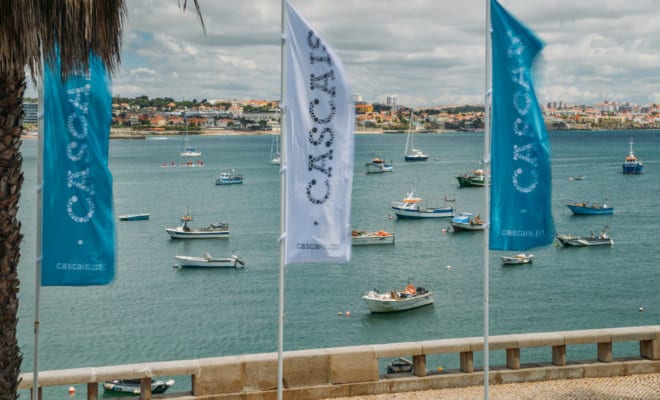Life
Wreck of 400-Year-Old Ship Carrying Indian Spices Found Off Portugal Coast

Portuguese seaside of Cascais Bay.
Photo: Bigstock
The ship sank sometime between 1575 and 1625, when spice trade between Portugal and India was at its peak.
Portuguese archaeologists have found a 400-year-old shipwreck on the seabed off the coast of Portugal. The ship, which was carrying spices, sank near the Portuguese capital, Lisbon, while returning from India, according to them.
The name of the ship is not certain yet, but it was concluded that it was a Portuguese ship, which dates back to the late 16th or early 17th century, the Guardian reported.
The wreck, found off the coast of Cascais in the first week of September, belongs to a 400-year-old ship, which sank in the sea while returning from India with spices laden on board, Reuters reported. The team of archaeologists said that the ship sank sometime between 1575 and 1625. It was the time when the spice trade between Portugal and India was at its peak.
The shipwreck was found around 40 feet below the surface. When the divers searched the wreck, they found spices, bronze cannons, Chinese ceramics and cowry shells. Cowry shells were a currency during the Colonial era, and were used in slave trading, the report added.
The wreck of this centuries-old vessel was discovered by a team of archaeologists, who were searching Portugal’s coast under a 10-year-old archaeological project with the support of the municipal council of Cascais, the navy, the Portuguese government and Nova University of Lisbon.
Wreck of 400-year-old spice trade ship found off coast of Portugal in ‘discovery of a decade’ https://t.co/dIRbVh6f5i pic.twitter.com/zrPYEKl7U8
— The History Press (@TheHistoryPress) September 25, 2018
Jorge Freire, the Scientific Director of this underwater archaeological survey, called this finding the “discovery of the decade,” and the most important search for the country. “From a heritage perspective, this is the discovery of the decade. In Portugal, this is the most important find of all time,” Freire was quoted as saying by the news agency.
He also said that the shipwreck and the material found in or around it are very well preserved.
“It’s an extraordinary discovery that allows us to know more about our history, reinforcing our collective identity and shared values,” Carlos Carreiras, the Mayor of Cascais, told the Guardian.
“For a long time, specialists have considered the mouth of the Tagus river a hotspot for shipwrecks. This discovery came to prove it,” Portuguese Minister of Culture Luis Mendes was quoted as saying by Reuters.




You must be logged in to post a comment Login